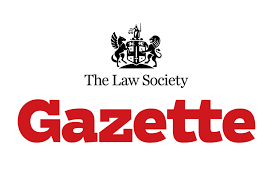News & Insights
Simple steps to protect your firm against professional negligence claims

Of my nearly 20 years of experience in defending solicitors, I have seen claims coming from different areas of a legal practice. Historically, certain areas like residential conveyancing have a higher strike rate. At the other end of the spectrum, the insurers generally identify immigration as low risk and low value. It does not matter which area of the law you practice; you can minimise the risk of a claim by always remembering the following rules:
A good diary system – Missing deadlines is probably the most common type of error. In litigation, missing a limitation period can be fatal. Less serious errors may result in a penalty or a fine. Putting several reminders in your diary to remind yourself is a simple enough step that everyone should take to avoid this mistake. Because it is so simple, there is no reason why one should not do it. If you have a PA who has access to your calendar and can remind you of the deadlines, it further minimises the risk of overlooking a deadline.
Lacking expertise – The earlier we admit that we cannot possibly know everything, the less of a chance that we will make a mistake. The wisdom is to know when to consult a colleague who has more experience than you in a certain area of law. For example, you are a conveyancer and you also deal with the stamp duty aspect on completion but SDLT has become more complicated and tax law changes in every financial year. Check with your tax colleagues and do not assume. As a litigation lawyer defending professional indemnity claims for nearly 20 years, would I feel comfortable to act for someone in a personal injury claim? Definitely not!
Facing a tight deadline – Mistakes are often made when we are stressed. We have a deadline which does not give us the luxury of time to consider issues carefully. We all face this kind of pressure. In those circumstances, think clearly beforehand whether you need to bring in a colleague to work alongside you. An extra pair of eyes always helps.
Keeping attendance notes – It seems obvious, but I often come across files which contain not a single attendance note. It is understandable that although we have the aid of the technology which makes recording things a lot easier, still we cannot record everything because it is just too time-consuming. The wisdom is to know when you need to do an attendance note and which conversations are important. Do it judiciously and wisely. You will be surprised how one well-documented attendance note can save the day!
Taking all the right steps to manage and minimise the risk of a claim does not necessarily mean that the risk can be eliminated altogether. What happens if a firm has a claim or finds itself in a circumstance which may give rise to a claim? Contact your broker and notify your insurers so that they can work with you at an early stage to try to find a way forward. Having sleepless nights all by yourself will not make the issue go away!
David Siu – General Counsel


